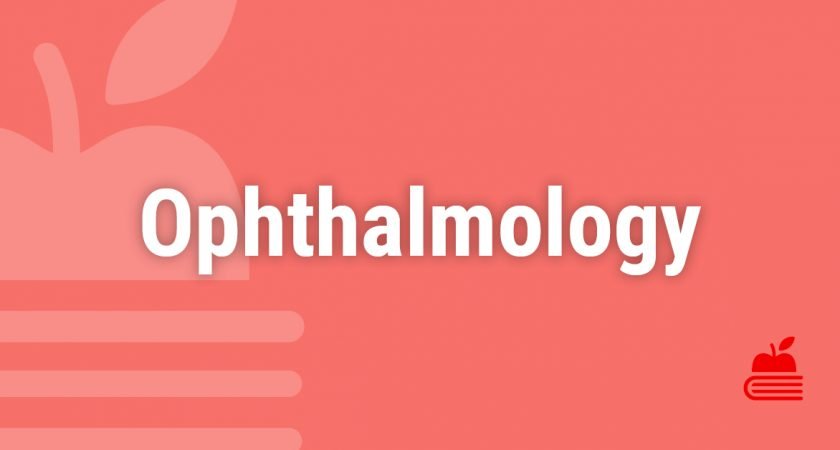Read week
Hi everyone!
Have you filled your eyes with magical things lately? It’s very easy to spend our days looking at our phones, our computers and our books and fail to take a few moments to watch the colourful sunset, or the wistful clouds, or the wild ocean. Take some time away from it all this week to spend a few minutes filling your eyes and mind with nourishing things.
This article is about Ophthalmology.
I was lucky enough to do my 3rd year medical school placement in a rural town in Queensland called Stanthorpe. It was at this tiny hospital that I became part of the team and where I learned to handle myself in the emergency department. One important tool to have in my arsenal was the slit lamp which I learned quickly and soon could complete a thorough eye examination including the removal of foreign objects with a needle. One task that all registrars should master is the ability to invert an eyelid to look for foreign bodies – it’s easier said than done. Understanding the pattern of fluorescein uptake is also important to recognise as this can tell you the difference between a dendritic ulcer from Herpes simplex ophthalmicus and a corneal abrasion.
Eyes are generally poorly taught in medical school, and it’s virtually impossible to do a ophthalmological rotation as a junior doctor. In addition to this, there are very few quality resources available in the usual places one would look – for instance there is no ophthalmological section in the eTG. EyeWiki is a page developed by the American Academy of Ophthalmology that is used readily by Australian ophthalmology registrars and can be a useful spot to look if stuck. There are some articles available through the Australian Family Physician. Don’t let the minimal resources leave you unprepared – there are still things that all GPs should know about eyes.
Eyelid disorders are firmly within the realm of the GP to manage, at least initially. Learning the difference between a stye, chalazion, blepharitis, entropion and ectropion is a very solid start. Warm cloth and gentle massage of the eye is a good starting point for treating lesions on the eyelid as it helps expel debris from the tear ducts, improve dry eyes, alleviate pain and sooth swelling. Don’t forget that skin cancers can also form on the eyelid and should be part of your differential list like other areas of the skin.
Be kind to yourself and take a few moments to fill your vision with beautiful things!
Dr Andrew Harris
Director of Amadeus Education.
Did you know?
According to BEACH data, 1.9% of all encounters in General Practice were specifically related to the eye. Consider this as you are preparing for your exams. (Source: General practice activity in Australia: 2015-16. https://bit.ly/2c4d8Em)
Presenting complaints:
These are the common presenting complaints that should be covered for this topic:
- Diplopia (https://bit.ly/2DdSVqt)
- Eye, red and tender (https://bit.ly/2RRAcJk)
- Eye, acute and subacute painless loss of vision (https://bit.ly/2srLuG3)
Eye, gradual loss of vision (https://bit.ly/2VXnFmL)
Common conditions:
These are the common conditions that should be reviewed for this topic:
Topics | Important readings |
Red eye – Conjunctivitis, Corneal abrasion, corneal foreign body, microbial keratitis, endophthalmitis, scleritis and episcleritis |
|
Eyelid disorders – including chalazion, stye, blepharitis |
|
Visual field disturbance – central retinal artery/vein occlusion, vitreous haemorrhage, posterior vitreous detachment, retinal tear, retinal detachment |
|
Glaucoma |
|
Retinal conditions – retinitis pigmentosa |
|
Orbital cellulitis |
|
Cataracts |
|
Herpes zoster |
|
Strabismus |
|
Medication doses:
These are the medications and doses that should be learned for the exam:
Condition | Medication |
Bacterial conjunctivitis |
|
CHECKS:
Here is the list of recommended Checks that would be useful in your study for GP exams (accessed via subscription from http://gplearning.racgp.org.au):
- Ophthalmology, July 2018
Focus on clinical skills:
Here is a brief focus on some OSCE preparation topics related to this topic:
- Visual acuity assessment
- Slit lamp assessment
Focus on medicolegal:
Here is a brief focus on the medicolegal issues covered in Australian Family Physician:
- Failure to vaccinate. AFP, June 2010 (https://bit.ly/2sBVFI1)
A patient’s duty to follow up. AFP, May 2009 (https://bit.ly/2AUClds)
Copyright © 2021 Andrew Harris

